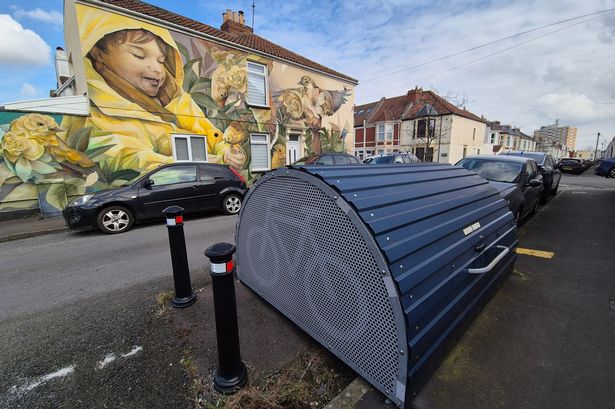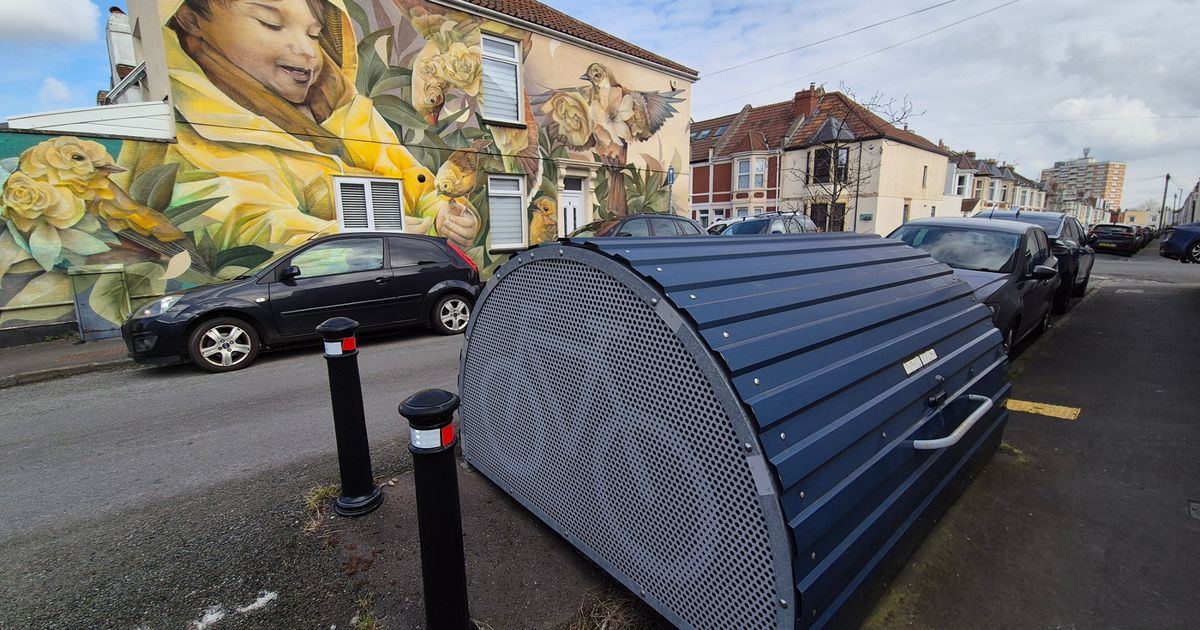Secure bike hangars help clamp down on rampant theft which puts people off cycling A bike hangar in Bedminster(Image: Alex Seabrook)
A bike hangar in Bedminster(Image: Alex Seabrook)
Hundreds of new cycle hangars are planned in Bristol after the last roll-out was almost fully booked up within 90 minutes. Bristol City Council is aiming to roll out at least 400 extra cycle hangars by 2030, a huge increase given there are only 102 hangars in Bristol at the moment.
Cyclists can pay an annual fee of £55 to lock up their bike in a hangar on the street near their home. One hangar can hold six bicycles and takes up the space of a single parked car. Secure storage space helps clamp down on theft and is useful for people in shared houses or flats.
More than 500 locations were suggested to the council two years ago. When bookings were taken for 40 new hangars earlier this year, five out of six spaces were already reserved within an hour and a half, showing the huge amount of unmet demand across Bristol.
Green Councillor Ed Plowden, chair of the committee, said: “Quite a lot of the target is not funded. But what we want to do is make sure that we’ve got a good policy in place to make sure that when funding is available we can get on and deliver it according to the priorities set out in here.”
Storing a bike inside a home can bring in dirt, cause clutter and reduce space in often narrow hallways. People living in flats can struggle to lift their bikes up stairs and might not have access to a garden for storage. This extra effort compared to leaving a car on the side of a road can make driving seem like the most convenient and easiest option.
Priority will be given to social housing, more deprived areas, and near terraces with shared houses or that have been converted into flats. Rolling out the 400 hangars is expected to cost £4 million, paid for using government grants from the Department for Transport.
Adam Crowther, head of city transport, added: “We want people to come forward with suggestions for where they want cycle hangars. There’s 500 locations already suggested so far. But we also need to be going out and proactively installing them in places where people are going to need them.
“It’s not all about getting people out of cars and cycling. It’s giving people access to more modes of getting around. We know a lot of people in the more deprived parts of the city don’t have access to a car, and if they don’t have access to a bike that gives them even fewer options. It’s giving people wider accessibility to transport options.”
The £55 annual fee covers the cost of maintaining the hangars. But this can seem odd in certain streets where there is no permitted parking, and drivers can leave their car for free. And in blocks of social housing, the cost can be an obstacle for people on already stretched incomes.
While the hangars provide a secure place to lock up a bike near where people live, there is still the issue of a lack of secure storage spaces elsewhere, like the city centre or near Temple Meads. Earlier this autumn British Transport Police admitted they won’t check CCTV footage if bikes are stolen outside train stations where they have been left for more than two hours.
One option being explored is cycle stores in the city centre, which a few companies are developing. These are accessed and paid via a card or phone. Bike lockers were recently installed in Cardiff city centre, with around 100 planned across the city. In Bristol, council staff are looking at whether these could be installed in places like Broadmead.
